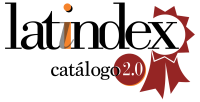Use of Geotechnologies as a subsidy for the professional practice of the Health Agent in identifying risk situations for covid-19
DOI:
https://doi.org/10.53455/re.v6i.247Keywords:
Vaccination Coverage indicator, Polio, Northeast BrazilAbstract
Context: In 2020, the spread of Covid-19 caused changes in social practices, significantly affecting Brazilian society. Technological deficiencies and resistance to scientific approaches aggravated the situation, with socioeconomic consequences at the municipal level. Additionally, gaps in the work of health agents were evident, highlighting the need for tools to support their community health promotion activities. Methodology: To address this, an outreach activity was conducted with health agents from Campina Grande and UFCG students, using online meetings and health worker reports. A risk indicator matrix based on their social skills was created. These indicators helped develop an application that integrates geographic and health data to assess territorial risks. Considerations: This application represents an opportunity to strengthen health policies, especially for community agents. The patent registration of the prototype at UFCG and plans to present it to the Campina Grande health department demonstrate the commitment to making this initiative a practical tool. It is expected that the application will underscore the importance of geographic knowledge and technological advancement in the fight against Covid-19.
Downloads
References
Ab´Saber, A. N. (2003). Os domínios de natureza no Brasil. São Paulo: Ateliê editorial.
Alles, M. A. (2006). Dirección estratégica de recursos humanos: gestión por competências. Buenos Aires: Granica.
Beceyro, A. (2021). La calidad de las bases de datos para el uso de geotecnologías en salud: El caso de intoxicación por plaguicidas en Mendoza. Estrabão, 2(1), 105–119. https://doi.org/10.53455/re.v2i.12 DOI: https://doi.org/10.53455/re.v2i.12
Correa, R. L. (1989). A Rede urbana. São Paulo: Ática.
Cunha, F. C. (julho-dezembro de 2020). Redes Técnicas e poder: a relevância dos agentes relevantes. Geografia, pp. 265-269.
Guimarães, R. B., Ribeiro, E. A., & Mota, A. A. (2020). Falhas nas estratégias de combate a pandemia: como reverter?
Hagestrand, T. (1967). Innovation diffusion as a spatial process. Chicago: University of Chicago Press.
IBGE. (2020). Regiões de influência das cidades. Fonte: IBGE: https://biblioteca.ibge.gov.br
Júnior, X. S., Pereira, M. P., Lopes, A., Azevedo, S., & Santos, A. (2020). Almanaque ACS. Campina Grande: UFCG.
Lefevre, F., & Lefevre, A. M. (2003). Discurso do Sujeito Coletivo: um novo enfoque em pesquisa qualitativa (desdobramentos). Caxias do Sul: Edusc.
Nóbrega, K. P., & Pereira, M. P. (2010). Conhecimento geográfico dos agentes de saúde da ESF e da VAS. Em A. B. Silva, E. P. Gutierres, & J. d. Galvão, Paraíba: pluralidade e representações geográficas (pp. 197-208). Campina Grande: Edufcg.
Pereira, M. P. (2001). Comunidades pobres urbanas da cidade do Recife. Dissertação. Recife, Pernambuco, Brasil: UFPE.
Pereira, M. P. (2011). Competências e práticas sociais de promoção e vigilância a saúde na cidade do Recife: o agente de saúde em foco. São Paulo: Scortecci.
Pereira, M. P. (2013). Teoria sobre o conhecimento geográfico dos agentes comunitários de saúde e agentes de combate a endemias: fundamentos a partir da abordagem qualitativa. Em G. J. Marafon, J. C. Ramires, & M. A. Ribeiro, Pesquisa Qualitativa em Geografia: reflexões teórico-conceituais e aplicadas. Rio de Janeiro: Eduerj. DOI: https://doi.org/10.7476/9788575114438.0009
Porto, M. F., & Freitas, C. M. (2002). Problemas ambientais e vulnerabilidade. Rio de Janeiro: Fiocruz.
Porto, B., Gurgel, H., & Catão, R. (2022). As dimensões do ensino de Geografia da Saúde no Brasil. Estrabão, 3(1), 16–28. https://doi.org/10.53455/re.v3i.27 DOI: https://doi.org/10.53455/re.v3i.27
Silva, C. A. (1995). Os avatares da teoria da difusão espacial. Rio de Janeiro: RBG.
Souza, M. L. (2015). Os conceitos fundamentais da pesquisa socioespacial. Rio de Janeiro: Bertrand Brasil.
Who. (2020). Coronavirus disease: advice for the public. OMS.
Downloads
Published
How to Cite
Issue
Section
License
Copyright (c) 2025 Xisto Serafim de Santana de Souza Júnior, Martha Priscila Bezerra Pereira, Mathias Antônio Costa de Sousa, Yury Araújo Lima Macêdo

This work is licensed under a Creative Commons Attribution 4.0 International License.
The magazine follows the Creative Commons (CC BY) standard, which allows the remix, adaptation and creation of works derived from the original, even for commercial purposes. New works must mention the author(s) in the credits.














